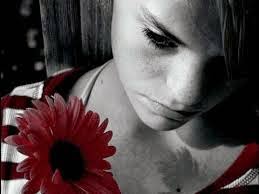Let’s start with specific definitions about depression…
Depression: a condition of general emotional dejection
and withdrawal;
sadness greater
and more prolonged than that warranted by any objective reason.
Clinical Depression: a depression
so severe as to be considered abnormal, either because of no obvious environmental causes,
or because the reaction to unfortunate life circumstances is more intense or prolonged than would generally be expected.
Bipolar Disorder (formerly
manic depressive disorder): an
affective disorder characterized by periods of mania alternating with periods of
depression, usually interspersed with relatively long intervals of normal mood.
Disclaimer: I’m just a person who has dealt with depression
since my late teens, although the diagnosis did not come until my late 20’s
(1977-78). I am not a doctor and am only offering my perception of what I have
learned from my own depressive episodes. After each section below add “in Terry’s
opinion.”
What depression is not:
(in Terry’s opinion…like that)
- Something that should be taken lightly
- Something that can be “shaken off” by looking on the bright side or be reminded how much you have to be thankful for
- An adjective – depressed is an adjective which can be found on any “feelings chart” - example: “I felt depressed after watching the news tonight.” Feeling depressed means sad and gloomy; dejected; downcast, but usually passes with time
What depression is:
- A noun
- A chemical imbalance in the brain which results in irrational thinking
- A condition that can hopefully be treated with medication…though this can be tricky (finding the right medication/dosage/interaction with other drugs/being able to “stick with it” because often the meds don’t kick in for about 3 weeks – and that can seem like an eternity for someone walking a thin line)
- Can cause anger, despondency, excessive sleeping, withdrawal from society, flat facial affect, extreme weariness (to name a few)
What medication for depression or bipolar disorder is not:
- An upper/stimulant
- A med that will magically take away problems/issues
What medication for depression or bipolar disorder can hopefully
do:
- Balance brain chemistry
- If medication is for clinical depression, the aim is to bring the brain’s level of rational thinking up to sea level, which in turn, allows the person to begin dealing with issues (with the help of a therapist, which I highly recommend).
- Medication for bipolar disorder is targeted to hopefully lower the manic stages back into a normal range and raise the depressive episodes up to a coping level.
·
My personal experience with clinical depression - the above picture is what I try to image during these times
Over the years, my episodes have greatly diminished in length and
severity. Environment plays a large part of triggering my depression. However, I have had three serious episodes in the past twelve years and all have involved medication. The first happened after a change in the medication I had been on for years. The new medication seemed to have no effect on my system at all. The second was altering my medication dosage (actually
increased it) which caused a serious nose dive. The third was a severe adverse
reaction from Ambien, which occurred last fall.
ON MY SOAP BOX:
You know those pharmaceutical commercials flowing on TV these
days listing the plethora of really severe side effects? Unfortunately, I know they're true…but in my opinion,
absurd.
Especially the ones that say:
“If you should begin
to experience serious mood changes or have suicidal thoughts, stop taking the
medication and call your doctor.”
I literally want to scream at this idiotic statement
(although I know by law they are required to mentio "potential" side effects). BECAUSE, if a
medication you are taking is causing suicidal thoughts, you are already in an
irrational state of mind, and most likely do not have the ability to make a
rational move, such as calling your doctor. (makes me grind my teeth)
OFF MY SOAP BOX:
A final note about Robin Williams, which spurred me to write
this post. I’ve always felt he suffered from bipolar disorder, simply because of how hysterically
witty and quick his mind worked (manic stage). It’s like his mouth and body fought to keep up
with his mental wealth of thoughts.
Then I saw him in Good
Will Hunting (still one of my favorite movies). During the entire show he
played such a low-keyed person. If you have a chance to watch the movie, pay attention to his eyes. There are several scenes that touched me to the very depth of my
soul, the hollowness, the sadness. I believe he was either in a depressive episode during the filming of Good Will Hunting or he
absolutely 100% knew how to play the part of someone who had experienced the depths of
that darkness.
Just my thoughts… (to be continued)






Well said, my friend.
ReplyDeleteThanks TG - have struggled with this one since his death and today just happened to be the day...
DeleteThanks for following my blog! You have a very fascinating blog! Loving it!
DeleteAnsie - thank you for the blog remark and for stopping by!
ReplyDelete